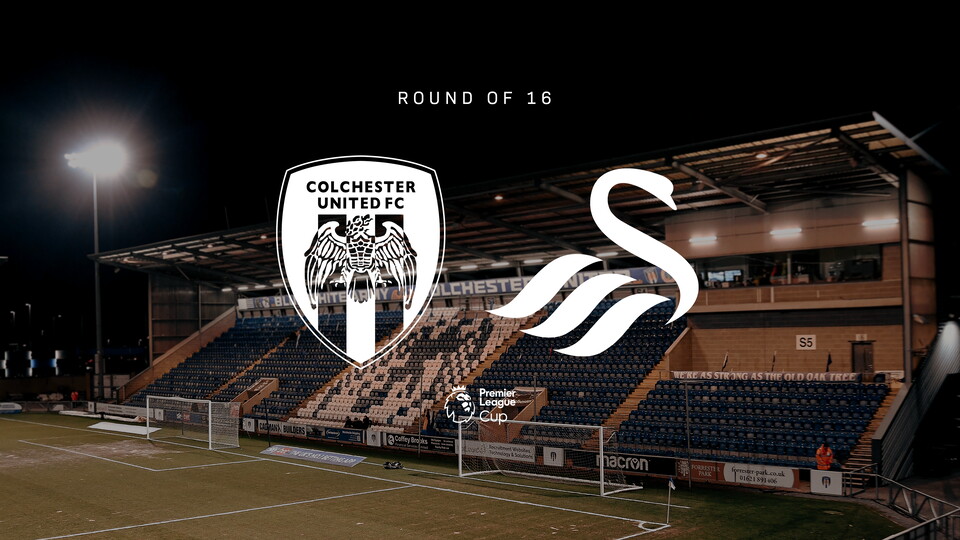Wales takes centre stage once more
Sat, 02/08/2014 - 09:00
Welsh club football is undoubtedly enjoying its highest ever profile as the Swans and Cardiff meet in the Premier League this evening.
It's estimated the Premier League is beamed around the world by 80 different broadcasters to an audience of 4.7 billion people - if a camera points in your direction remember to smile and wave to the world!
Things have come a long way since the clubs first clashed in the Southern League Division Two match back in 1912 when a crowd of 8,000 turned up at the Vetch.
With the world watching, last November's first South Wales derby in the Premier League was a fantastic advertisement not just for Welsh football, but Wales as a nation.
It was especially pleasing there was none of the off-field violence of the past, which had been extensively documented in certain sections of the national media in the run up to the game.
But if Welsh club football is enjoying its greatest period of success and its highest profile at the moment, this certainly isn't the first time Wales has starred on the global stage.
1958 was a vintage year for football in Wales, and Swansea in particular, as the national team, featuring the Magnificent Seven players from the city, appeared in the World Cup finals for the first and only time.
The likes of Swansea born brothers John and Mel Charles, Len and Ivor Allchurch, Cliff Jones, Terry Medwin and Jack Kelsey helped Wales reach the World Cup quarter final where they were eventually defeated by a Pele-inspired Brazil.
But how many of you realise that just four years earlier, a Welshman went two steps further than the Charles and Allchurch brothers when he actually appeared in the 1954 World Cup Final - the only Welshman to do so?
There's a joke that goes around across the border in England . . .
Question: "What do you call a Welshman in a World Cup Final?"
Answer: "Ref!"
Well, that's not quite correct as far as football is concerned. . . or funny. The factual answer is: "Linesman", or assistant referee as they are now known.
In 1954, Mervyn "Sandy" Griffiths, of Abertillery, ran the line for the World Cup Final between rank outsiders West Germany and the Mighty Magyars - Hungary.
Despite also being a full-time schoolteacher, Griffiths was acknowledged as being one of the best referees in Europe at the time.
The previous season he had refereed the legendary "Mathews Final" between Blackpool and Bolton Wanderers in the FA Cup at Wembley and he had already been to the 1950 World Cup finals in Brazil and would go on to officiate at the 1958 finals in Sweden.
Now he was stepping out on the biggest stage of all.
And the man of Gwent played possibly the biggest role of all in that historic final. A role that would arguably help shape the future of Germany and Hungary as nations, not just as football teams.
Now, although I am a huge football fan, I never knew the story of Griffiths' role in this final until a few years ago, and I would guess many others didn't either.
But the part he played in the match which was to become known as the "Miracle of Berne", and indeed the economic future of the two competing nations is enormous.
At the time Hungary were arguably the best team on the planet having not lost for 36 matches since May 1950. On the way to the final they had hammered the Germans 8-3.
West Germany on the other hand had only returned to playing international football four years earlier because of the Second World War.
Such was the confidence back home in Budapest, commemorative stamps celebrating Hungary's victory had already been printed and the foundations of 17 life-sized statues of the squad had been laid.
True to form the Hungarians raced into a 2-0 lead after just eight minutes. But incredibly the Germans fought back to take a 3-2 lead with just six minutes remaining.
Then, with time almost up, the legendary Hungarian Ferenc Puskas scored what appeared to be the equalising goal, which English referee William Ling disallowed only after Griffiths flagged Puskas offside.
The effect Griffiths' decision had on the final is obvious as the Germans held out to record a 3-2 victory and win the World Cup against all expectations.
But the wider consequences of the result are immeasurable.
The fairytale win was a huge boost to German national confidence following the Second World War and was seen as a foundation for rebuilding the nation.
Meanwhile, rioting in the streets of Budapest after the final was seen as a spark for the 1956 uprising in Hungary.
All this on the wave of a Welshman's flag.
It's fitting that exactly 60 years later - in a World Cup year - we should remember possibly Wales's biggest global footballing achievement by an individual, on a day two Welsh clubs have the eyes of the world fixed firmly upon them.
The story of the 1954 World Cup final shows what an effect football success can have on an entire nation's fortunes.
In the past rugby has been seen as the sport which has the greatest influence on Welsh life, but the exploits of the Swans over the past two and a half seasons in the Premier League and Cardiff's arrival this year has certainly challenged if not overturned rugby's apparent dominance.
Even former First Minister of Wales Rhodri Morgan recently said that Swansea and Cardiff staying in the Premier League was more important to Wales than the national rugby team winning a third consecutive Six Nations title.
Hopefully today's match won't be as controversial as Mervyn Griffiths' role in the 1954 World Cup final, but isn't it great to see Wales once again at the centre of the football world?
And, as a Swans fan, it will be even better if the home side even up South Wales derby score in the Premier League with a home win this evening.



